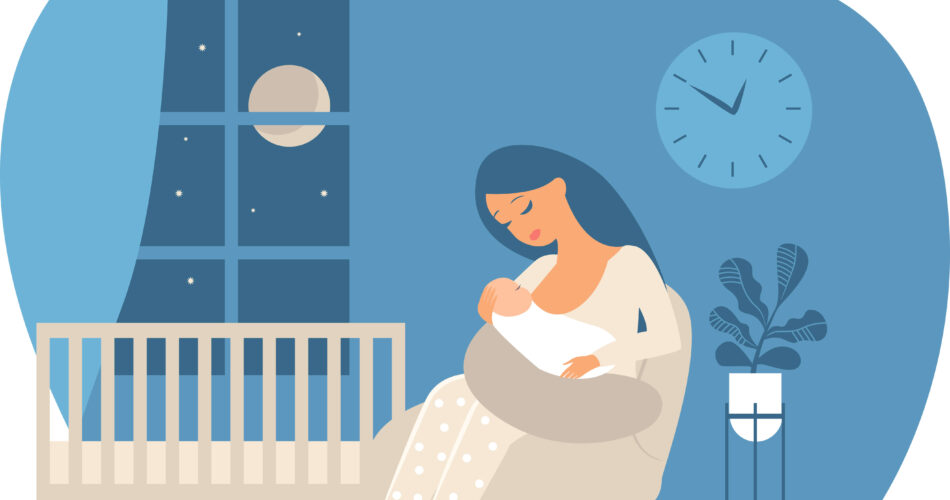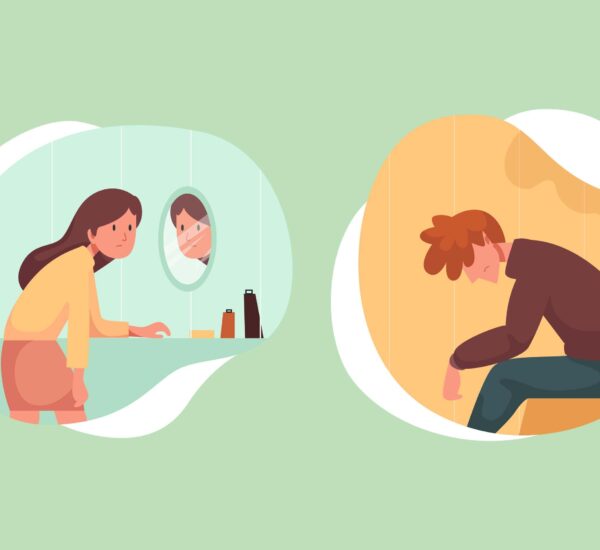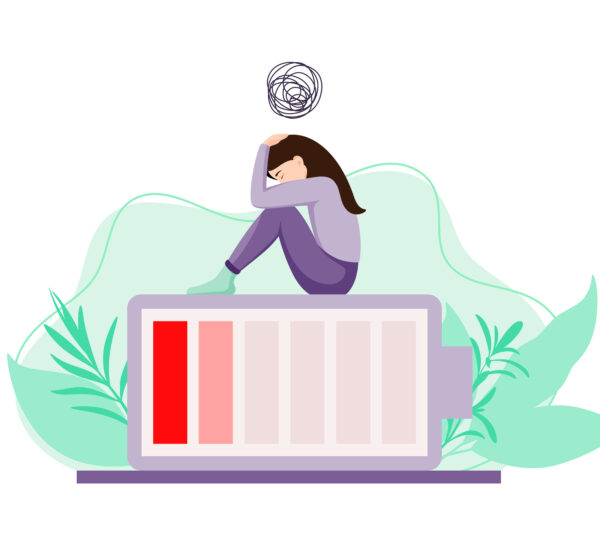The process of pregnancy can be difficult as the mothers undergo hormonal and physical changes. These changes can trigger postpartum depression, affecting the overall health of the mothers. That’s why having a reliable support system is crucial if mental disorders like this occur.
In this blog, we’ll uncover these common mental health conditions that affect many new mothers and new fathers. Whether you are a new parent or supporting someone who is, this article will equip you with the knowledge and understanding needed to navigate this challenging experience.
Understanding Postpartum Depression

Postpartum depression, sometimes referred to as postnatal depression, is a type of condition that occurs after childbirth. It affects not only women but also men, although at a lower rate. Unlike the “baby blues,” postpartum is more severe and persistent. Individuals with this condition often suffer from the common symptoms of depression, with depth that is triggered after giving birth.
While hormonal fluctuations can contribute to postpartum depression, it is a complex condition with multiple causes. Understanding the complexities of postpartum psychosis and other aspects surrounding it is essential for providing appropriate support and treatment. By raising awareness and promoting open conversations about this condition, we can help individuals experiencing severe postpartum depression symptoms receive the health care and understanding they need.
Causes and Risk Factors of Postpartum Depression

Aside from the symptoms, there are several triggers that causes this type of depression. With this illness not fully understood by many, recognizing the risk factors can be a great start as several factors have been identified as potential contributors to its development.
Let’s begin!
Biological Factors
Biological factors play a significant role in the development of this illness. The hormonal changes that occur in a woman’s body after childbirth can have a profound impact on her mood. One of the key hormonal changes is a rapid drop in estrogen and progesterone levels. These hormonal fluctuations can disrupt the delicate balance of neurotransmitters in the brain, such as serotonin and dopamine, responsible for regulating mood.
Physical Changes
Furthermore, the physical toll of pregnancy and childbirth can also contribute to the development of postpartum depression. The exhaustion and physical discomfort experienced during this time can affect a woman’s mental well-being. The body’s recovery process, coupled with the demands of caring for a newborn, can be overwhelming and contribute to feelings of sadness and despair.
Constant Sleep Deprivation
On the other hand, new mothers often face a myriad of challenges that can impact their mental health. Lack of sleep or not enough rest are common issues during this time, as newborns require frequent feeding and care throughout the day and night. Sleep deprivation can disrupt a woman’s emotional stability and make her more vulnerable to developing postpartum depression.
Psychological Changes
Lack of social support is yet another environmental factor that can have a detrimental impact on a woman’s mental health during the postpartum period. Feeling isolated and alone can exacerbate feelings of sadness and make it more difficult for a new mother to cope with the challenges of motherhood. Having a strong support system in place, whether it be from family, friends, or support groups, can make a significant difference in preventing or managing postpartum depression.
Recognizing the Symptoms of Postpartum Depression

Emotional and Behavioral Signs
Sadness: One of the most common signs is persistent sadness or a feeling of emptiness. A new mother with a new baby may begin to find herself constantly feeling down, even when there is no apparent reason.
Feeling irritable: Another postpartum depression, which involves emotional changes. New mothers may find themselves becoming easily frustrated or agitated, often over minor things. This irritability is a common problem that can strain relationships.
Feelings of guilt or worthlessness: New mothers may constantly blame themselves for not being good enough parents or feel like they are failing in their role. These feelings can be overwhelming and contribute to a sense of hopelessness.
Loss of interest: Hobbies or activities that once brought joy may now seem uninteresting or meaningless. This loss of interest can further exacerbate mental health problems.
Withdrawal from social interactions: It is a behavioral sign of postpartum depression. New mothers may isolate themselves from friends and family, avoiding social gatherings or even simple outings. This withdrawal can be a result of feelings of shame or embarrassment, or simply a lack of energy and motivation.
Physical Symptoms
Fatigue: New mothers may feel constantly tired, regardless of how much sleep they get. This fatigue can be overwhelming and make it difficult to perform daily tasks and care for their baby.
Changes in appetite and weight: Some mothers may experience a loss of appetite, leading to weight loss, while others may find themselves overeating and gaining weight. These changes in appetite and weight can further contribute to feelings of guilt and low self-esteem.
Headaches: These headaches can range from mild to severe and may be accompanied by other physical discomforts such as muscle aches and tension.
Physical pain: Some new mothers may experience unexplained pain, such as backaches or joint pain, which cannot be attributed to any specific injury or medical condition.
The Impact of Postpartum Depression on Parents and Children
Effects on the Mother
Postpartum depression can have profound effects on the mother’s mental, emotional, and physical well-being. It can significantly interfere with the ability to care for oneself and the baby, leading to self-neglect and difficulty bonding with the child. Additionally, untreated postpartum depression can increase the risk of chronic depression and negatively impact the mother’s long-term mental health.
Consequences for the Partner
The partner of an individual experiencing postpartum depression can also be affected. They may feel helpless, frustrated, and overwhelmed by the situation. Relationship strain and decreased satisfaction can occur if effective communication and support are not established between partners.
Implications for the Child
Postpartum depression can affect the overall development and well-being of the child. A distressed and emotionally unavailable caregiver can impact the child’s attachment patterns, cognitive development, and emotional regulation. Early intervention and support are essential in minimizing these risks and promoting healthy child development.
When to Seek Medical Attention
Early intervention can make a significant difference in managing the condition and preventing long-term consequences for both the parent and the child. That’s why knowing when to seek help from a mental health provider is important to ensure proper management of postpartum depression.
If any of the mentioned symptoms occur, individuals might have an increased risk of depression. Do not hesitate to reach out to healthcare professionals for guidance and support in navigating through this challenging period. Your well-being and that of your family are of utmost importance.
Treatment Options

Medical Treatments
Medication may be prescribed to individuals with moderate to severe postpartum depression. Antidepressant medications can help restore chemical imbalances in the brain and alleviate symptoms. It is crucial to consult a healthcare professional before considering any medication, as they can guide individuals about the benefits and potential risks.
Therapy and Counseling
Therapy and counseling, such as cognitive-behavioral therapy (CBT) and interpersonal therapy (IPT), are appropriate treatment options for postpartum depression. These approaches can help individuals develop healthy coping strategies, address negative thought patterns, and improve communication and relationships within the family.
Self-Care Strategies
Self-care plays a vital role in managing postpartum depression. Engaging in activities that promote relaxation, self-expression, and physical well-being can help alleviate symptoms. These activities may include exercise, mindfulness or meditation practices, maintaining a healthy diet, getting adequate sleep, and seeking social support from loved ones and support groups.
Final Takeaway
Postpartum depression is a complex and significant mental health issue that impacts many new parents. It is important to understand the definition, misconceptions, causes, symptoms, and available treatment options to provide support for individuals experiencing this condition.
By shedding light on postpartum depression, we can ensure that new parents are equipped with the knowledge and resources needed to seek help and navigate this challenging time. Remember, seeking professional assistance and using available support networks are crucial steps towards recovery and overall well-being for both parent and child.
Book an online consultation with a psychiatrist today!



